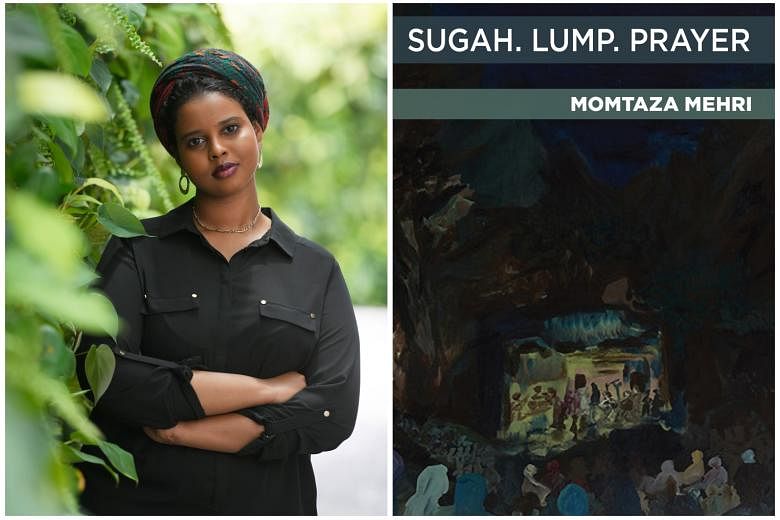It was not in dusty tomes that British poet Momtaza Mehri first encountered poetry, but through spoken-word cassette tapes that her father, a Somali immigrant, would play in the car.
Today, she composes poems in bursts on a phone app while taking the bus or train, then painstakingly edits them. "Poetry is all about the editing," she says. "A poem is made in the edit, in my opinion."
Mehri, who is 25 this year, is the Young People's Laureate for London, a post created by British writer development agency Spread the Word and selected by a panel of arts organisations and poets. Her role is to hold programmes to nourish a poetry culture among the youth. Much of her work is done in the outer boroughs of London where young people might not have as much exposure to poetry.
Spread the Word's chair of trustees Rishi Dastidar said to The Guardian last year of Mehri: "Her poetry is precise and powerful, and rich with images that are haunting. She is not afraid to tackle the biggest of subjects, which, combined with her talent, is going to give the role a renewed sense of purpose and visibility."
Mehri was in Singapore two weeks ago as part of the Singapore Writers Festival's outreach programme, Words Go Round, to give workshops at schools and readings at National Gallery Singapore and local non-profit group Sing Lit Station.
"There is a camp of young people who see poetry as something that is taught in school, that is very academic and removed from them," she tells The Straits Times in between events in Singapore.
"I want to make them aware that poetic language is used in everyday speech and the music they listen to, show them that it is something that is theirs and that they can use to describe their own reality."
Mehri, who co-won last year's £3,000 (S$5,289) Brunel International African Poetry Prize, is the author of a 2017 chapbook, sugah. lump. prayer. The other winners were British-Nigerian poet Theresa Lola and Ethopian-American poet Hiwot Adilow.
Mehri is working on an art book of poetry, photography, archive material such as colonial stamps and more. It has the working title of Doomsday Gossip and will be published next month. She will also publish another book of essays next year.
She is the second to hold the laureate post after British-Nigerian poet Caleb Femi. The post was preceded by the Young Poet Laureate, which began in 2013 with British-Somali poet Warsan Shire, who famously had her verse appear in pop star Beyonce's music video for the 2016 album Lemonade.
Mehri was born in London to parents who fled Somalia due to civil war. Poetry entered her life through Arabic, her first language; her mother, who works in special needs education, has a degree in Arabic literature and "always has her nose in a book".
As a result, Mehri saw poetry differently when she finally encountered it in the English canon in class.
Otherwise, she says: "I might have been intimidated by the hierarchies there are and how poetry culture can be extremely elitist in the United Kingdom in the divide between page poets and stage poets. But as it was, I only saw English poetry as one tradition out of many possible traditions."
Growing up as the child of immigrants, she recalls being spat on in the street. But it was the resentment she felt from authority figures such as teachers that truly affected her.
"It was like being in a space where you could see all these lasers around you but nobody else could, and you had to be very careful about how you were seen and how to manoeuvre around them," she says. "You knew people would meet you and dislike you just because of who you are and there was nothing you could do about that but internalise it and still grow up. It was a lot to take on as a child."
She has written about diaspora, displacement and the cognitive dissonance of visiting Somalia - which she did at age 11 - and realising it was not the fairy tale she had built up in her head. But her experiences, she stresses, are not unique.
"The history of war and displacement, that's not just a Somali thing. If you go to North London, Bosnians know about that, Yemenis and Kurds know about that and these are your friends, the people around you. You're just another new chapter in the story, but it's a universal story."
• sugah. lump. prayer is available as part of the 11-volume chapbook box set, New-Generation African Poets: Nne ($45.71), edited by Kwame Dawes and Chris Abani, from Books Kinokuniya.


